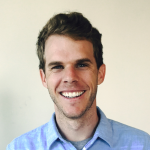Students with a direct and focused interest in Neuroscience are recommended to apply to the UCSF Neuroscience Graduate Program. This Neuroscience graduate program provides a center for academic activities related to the exploration of brain function and disease. Note that the Neuroscience Graduate Program has a separate student admissions process. Students interested in Neuroscience have two choices for graduate study at UCSF. BMS offers Neurobiology as one of our eight thematic areas; students will be required to participate in BMS coursework and program activities and may choose to do thesis research in a participating BMS/Neuroscience lab. One of the remaining big questions in science, the nature of the human mind will explain where we have come from and where we are going both as a species and as individuals. In the past, study of the nervous system divided into two very disparate fields, one examining behavior as a function of experience (psychology), and the other interested in the physical basis for brain activity (neuroscience). It is now clear that these approaches must be integrated for any real understanding, and UCSF is one of the few institutions with the breadth and depth of investigators to make significant advances.
Neuroscience research at UCSF spans a wide range of topics from the membrane proteins that regulate cell excitability to neurological and psychiatric disease. Several groups focus on the biophysical mechanisms that regulate cell excitability, including the structure and function of ion channels, and the mechanisms of membrane transport. Although highly reductionist, the approach has important implications for the behavior of neural circuits and information processing. Other groups study synaptic transmission, from the molecular basis for transmitter release to signal transduction by the postsynaptic cell and the changes in synaptic strength that underlie neural plasticity. Active collaboration continues to enable major scientific breakthroughs by combining different experimental approaches, for example, molecular biology and synaptic physiology. Other highly interactive groups studying the specification of neuronal populations, the properties of stem cells, axon guidance, dendrite structure and synapse formation address the wiring of neural circuits in neural development. In addition, the Keck Center for Integrative Neuroscience provides a focus for neural systems where scientists pursue the computational basis for a wide range of behaviors from apparently simple but highly regulated reflexes to auditory processing in the cortex, the acquisition of song by birds (as a model for language), and the pain pathway. Again, collaboration between groups enables the progress at multiple levels necessary to understand the molecular and physiological basis for behavior.
Many investigators at UCSF also have a major interest in disease. The Institute for Neurodegenerative Disease, founded by Nobel laureate Stanley Prusiner, includes groups interested in Alzheimer’s disease, Parkinson’s disease and trinucleotide repeats as well as prions. Cynthia Kenyon has recently made major advance in our understanding of aging. In addition, a substantial number of investigators have a primary interest in drug addiction. The Wheeler andAARG Centers for the Neurobiology of Addiction include groups using worms, flies and vertebrate models to explore the molecular and physiologic basis for drug sensitivity, tolerance and compulsive drug-seeking behavior. Further, other groups study the genetics of human populations to identify the molecular determinants for a wide range of disorders including epilepsy, multiple sclerosis and migraine. Several of the genes responsible for these disorders involve ion channels, attesting to the importance of the connection to basic building blocks of the nervous system.
In summary, the depth of the neuroscience program at multiple levels provides an extraordinary environment to understand brain function and disease.




